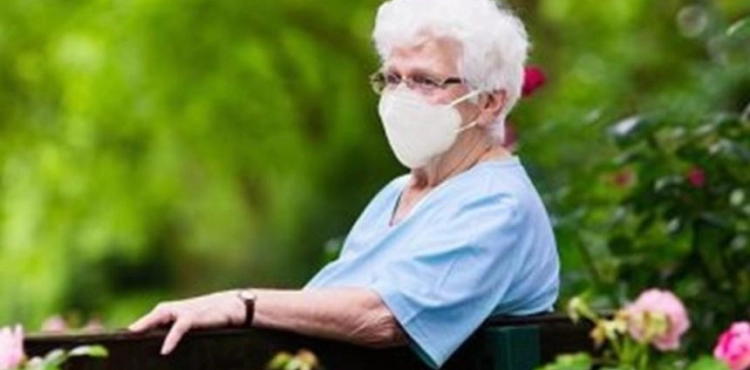"The elderly are more vulnerable to Covid-19": This message has been repeated since the beginning of the health crisis, a fact reflected in the statistics, but it must nevertheless be attributed and scrutinized on the actual effects of the virus on senior health Age.
From what age do we become "threatened" with this disease? Can age be adopted as a stone standard? Below is an explanation of the situation of this particular population affected by the epidemic.
The World Health Organization considered that "the threat of exposure to the most serious form of the disease gradually increases with age, as of the age of forty", and identified the most vulnerable group of those aged "more than 60 years" (in addition to those suffering from chronic diseases).
But the UK has set a 70-year threshold to identify people who are recommended to adhere to a strict healthy quarantine.
Nevertheless, data published since the outbreak of the epidemic show an "additional threat" from the age of 60. This included a study published on March 31 in "The Lancet" that estimated the death rate for Chinese aged 60 to 69 to 4 percent, compared to 1.4 percent for the total number of those injured.
This percentage remains lower than that of the 1970s (8.6 percent) and those over 80 (13.4 percent).
Likewise, the percentage of patients requiring hospitalization increases sharply with the increase in age: 4.3 percent in the forty years, 11.8 percent in the sixties, and 18.4 percent in the eighties (i.e. about one in five patients).
Comparable data are found in other severely affected countries. In France, more than two deaths occurred among all three patients (71 percent) and half of the hospitalizations (51 percent) among those aged 75 and over, according to figures from the French Public Health Agency.
Moreover, more than a third of deaths occurred in France among pensioners residing in social welfare institutions.
Meanwhile, the National Academy of Medicine of France notes that "the age cannot be reduced in the number of years." The Foundation considers that these "definitive statistical data" represent, above all, a "reflection" of the most common health problems with age.
Physicians prefer to talk about age physiologically, since what is in common between Robert Marchand, a Frenchman known to practice cycling despite his over 100 years of age, and a person of the same age in one of the elderly homes where there are on average eight accumulated health problems in each resident?
On the other hand, there are many unknowns about Covid-19 that make it difficult to determine which groups are most vulnerable.
In this regard, Florence Adair, an infectious disease specialist, said on Sunday that "it is very difficult to expect patients who will suffer from dangerous symptoms" and who need hospital treatment "and who will deteriorate in hospitals."
"We are conducting a standard assessment of the fragility of the elderly patient" based on concomitant diseases (heart or chest disease, diabetes, obesity, etc.), and his psychological, nutritional, and cognitive status, "Olivier Guerrin, president of the French Society of Medicine and Gerontology, told AFP.
"But up to this point, we do not have enough data to determine the factors" that most affect patients´ response to the virus, he added.
The stone approved for curbing the outbreak of the new coronavirus includes risks, especially for the elderly.
"The most difficult difficulty is the lack of a scientific ability to determine the balance between the benefits and risks of stone," Olivier Guerrin says, adding, "But we are increasingly aware that it is not as positive as expected."
Several doctors have warned of psychological distress worsened by loneliness and may be fatal to people with fragility, especially in homes for the elderly.
There is also a bet related to maintaining health in the stone, as poor physical activity and poor nutrition can weaken the muscles, which may lead to "fragility".
There is an influence on the psychological aspect and maintaining family and social ties in avoiding the retreat of the "enthusiasm" of the elderly in implementing the activity and nutrition guidelines.
"The prevention of Covid-19 falls within the prevention of pyramid in general," said Matteo Pescoli, president of the Geriatrics Geriatrics Society.
On the other hand, Guerrin points out that the use of this category of inappropriate drugs leads in many cases to the recovery departments "elderly people with chronic diseases who have more severe symptoms than usual," such as heart failure.
This doctor at the University Medical Center in Nice considers this an important motivation "to demand the partial dismantling of these people."












